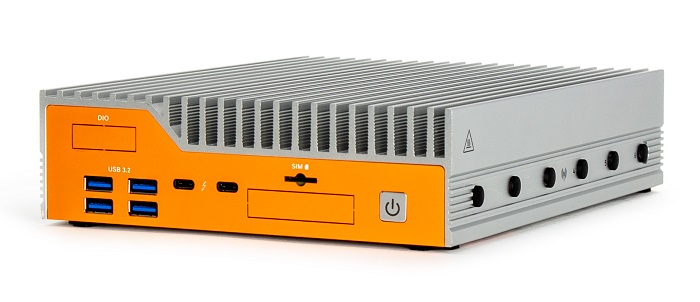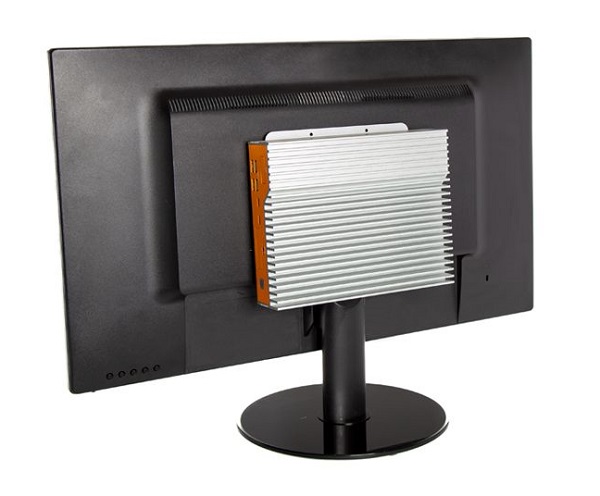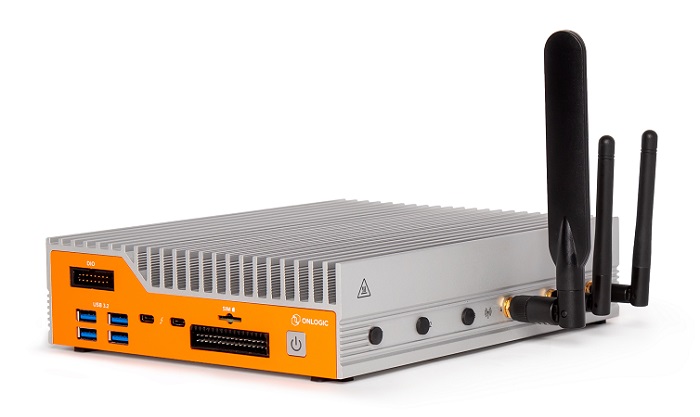OnLogic Releases the New Helix 511 Linking Modern and Legacy Systems
OnLogic, manufacturer of rugged industrial computers, adds to its existing line of IPCs with a product that boasts connecting to new and legacy components with extended array of communication options.
Industrial fanless computers have been around for a while, but recently, they are being made even more rugged and more powerful than ever to fit the needs of advancing technology demands. OnLogic is a computer company that offers rugged industrial PCs for the industrial automation market.
Their product line doesn’t stop at industrial computers, they also have a line of edge servers and business-class rack-mount servers.

The new Helix 511 IPC from OnLogic. Image used courtesy of OnLogic
Industrial Personal Computer (IPC)
An industrial computer is not just a standard PC inside an industrial-looking case, these computers are required to withstand harsh environments such as high and low temperatures, high humidity, and even dusty environments. Not only does the operating environment present challenges for these computers, but they also are required to have specific various I/O capabilities.
Serial ports, discrete input and output options, and multiple network ports are just some of the capabilities required from an IPC. They also need to be fast; real-time data collection needs to happen as soon as state changes happen in the physical world.
Legacy Device Connectivity
Recently, OnLogic has released a new IPC that is designed for interfacing with legacy equipment as well as new systems. While maintaining high-speed Ethernet and USB device connectivity, the Helix 511 allows up to 4x simultaneous serial port connections, such as RS-232 or RS-485, allowing it to operate seamlessly within nearly any generation of equipment.

Small enough for a VESA monitor mount, the Helix 511 provides capacity for control, processing, and visualization in one small form factor. Image used courtesy of OnLogic
Helix 511 IPC Specifications
The Helix 511 is an industrial fanless computer that makes use of the newest technology to provide capability far beyond simple legacy communication protocols.
The 511 supports Intel’s 12th-generation processors, from the Celeron all the way to the i7. Memory is configurable starting with 8GB of DDR5 4800 memory and up to 64GB. The primary data storage utilizes an M.2 SATA SSD and is configurable up to 2TB with an option to add additional storage or cellular connectivity.
The Helix 511 is not designed for intensive graphics but does offer an onboard graphics processor option of either Intel UHD or Intel Iris Xe. The end user selects the operating system at the time of ordering, either Windows, Ubuntu, Linux, or Red Hat Enterprise Linux. With these options, the final build is a respectable PC that can be installed inside an electrical cabinet or installed directly on the machine. The PC is powered by 12 or 24 VDC and can operate in temperatures of 0 - 50°C. Onboard digital inputs and outputs allow for programmable status or control signals, along with the four simultaneous serial connection ports.

The Helix 511 IPC allows cellular and wireless connections where appropriate providing more flexibility in system infrastructure. Image used courtesy of OnLogic
IPC Applications
Looking back on historical trends, standard computers used to be more involved with automation several deceased ago, but with harsh environments and components that were not long-term supported, computers began to fall off the spectrum, being replaced with rugged, dedicated PLCs and PACs. Today, many computers are finding their way back into automation. These innovative industrial-grade computers are capable of harsh environments and are built to last.
These IPCs mounted directly on the equipment open up the possibility of isolated data collection systems, web servers that can interact with databases and PLCs, or even edge computing for cloud data storage. Virtual PLCs are even making a comeback, now that industrial PCs are becoming standard components on machines. A virtual PLC is a kind of software that runs on a PC, but is capable of executing ladder logic and interfacing with I/O in the field.
According to OnLogic, the industrial computer industry typically falls behind on the latest computer technology, driving the company forward in its mission to correct that issue by offering products with the latest technology for current and future automation requirements.

 Facebook
Facebook Google
Google GitHub
GitHub Linkedin
Linkedin








